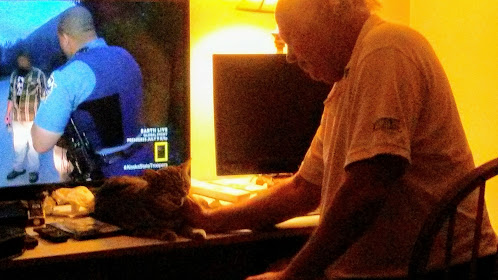Once upon a time, anxiety was anxiety. Maybe you were going for a root canal, taking a flight when you were a nervous flier or meeting your in-laws for the first time so you had nerves.
Before benzodiazepines like Valium and Librium, you might have taken a "Miltown"--a drug famously mentioned in the Woody Allen movie Annie Hall--or even taken a drink.
But a funny thing happened to anxiety when drugmaker-funded "experts" began writing the Diagnostic and Statistical Manual of Mental Disorders or "DSM," the Bible for mental conditions. Your anxiety was "really" depression even though you felt fine (when you weren't flying or going to the dentist.) Your anxiety was a symptom of an underlying "depression" and you should replace your anxiety drug--which you took twice a year--with an antidepressant which you would take every day. With one diagnostic category nudge, drug profit grew several thousand fold! And it continues.
The discovery that many people with life problem or occasional bad moods or bad days would willingly dose themselves with antidepressants sailed the drug industry through the 2000s. A good chunk of the $4.5 billion a year direct-to-consumer advertising was devoted to convincing people they don't have problems with their job, the economy and their family, they have depression. Especially because depression can't be diagnosed from a blood test.
Depression may masquerade as headaches, insomnia, fatigue, backache, dizziness, lightheadedness or appetite problems mongered drugmakers. "You might feel queasy or nauseous. You might have diarrhea or become chronically constipated." And here, you thought it was something you ate!
"Many depressed people never get help, because they don't know that their physical symptoms might be caused by depression. A lot of doctors miss the symptoms, too," read more drugmaker propaganda. "Most of us know about the emotional symptoms of depression. But you may not know that depression can be associated with many physical symptoms, too."
This is Why You Aren't Getting Better
You would think the pharma profit party would be enough for drugmakers. You'd be wrong. Drugmakers then debuted the concept of "treatment resistant depression." if you weren't deliriously happy with your SSRI, it wasn't that you didn't have depression in the first place, you had "treatment resistant depression." Your first expensive and dangerous drug needed to be coupled with more expensive and dangerous drugs because monotherapy, one drug alone, wasn't doing the trick! Drugmakers tripled and quadrupled their money with this marketing ruse.
(Note: You can view every article as one long page if you sign up as an Advocate Member, or higher).






